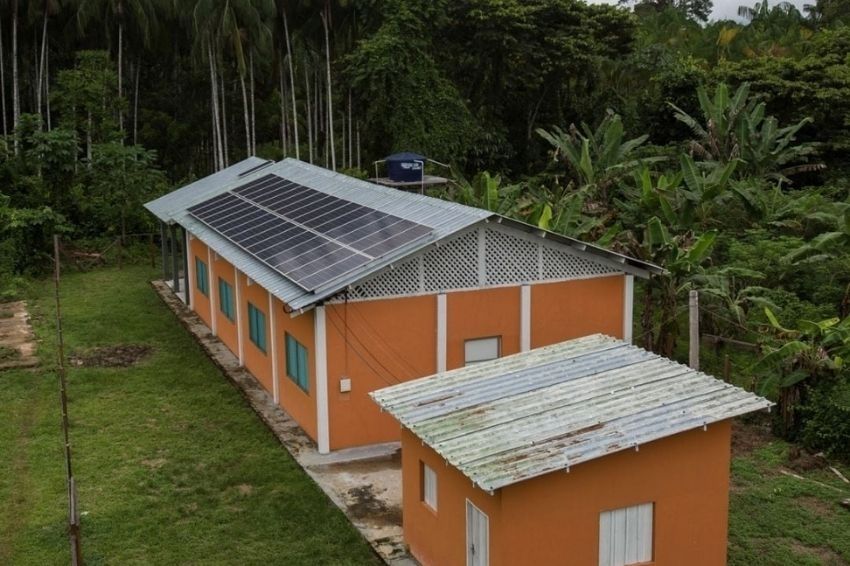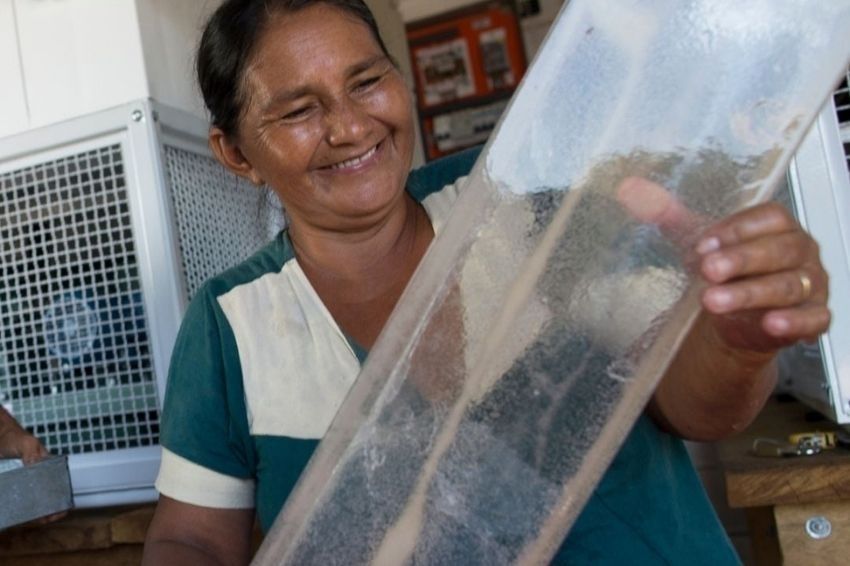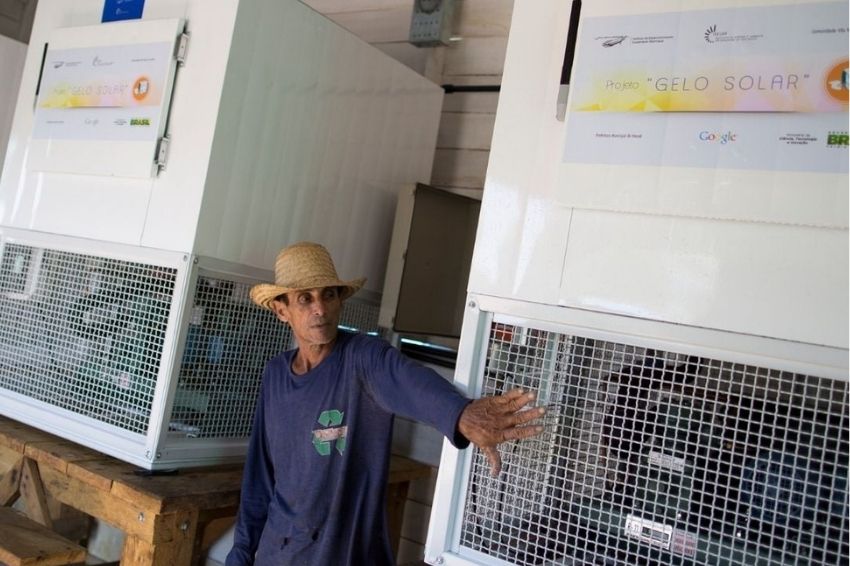Have you ever imagined producing ice using solar energy? A group of researchers from IEE (Institute of Energy and Environment), from USP (University of São Paulo), achieved this feat.
They have developed an innovative technology that is being used to preserve food in isolated communities in the Amazon.
The project, called Solar Ice, is part of the Quality of Life Program, of the Mamirauá Sustainable Development Institute.
The company has been testing and improving three machines – which weigh 300 kg each – powered by Photovoltaics.
It is estimated that they, installed in Vila Nova do Amanã, municipality of Maraã (AM), have a daily capacity to produce around 30 kg of ice.
The equipment consists of 60 panels and a rainwater collection system, used to make ice.
The project is experimental and began in August 2015. Furthermore, they highlighted that a fourth machine was installed at Pousada Flotuante Uacari, also in Amazonas, for team monitoring.

Solar project benefits riverside community
According to the Mamirauá Institute, before technology reached the riverside community, families who make a living from fishing and agriculture traveled up to 15 hours by boat to sell products and purchase ice in urban centers.
Due to the distance, they even paid a high cost for the product sold on vessels that access the region. Now, more than 60 residents use solar as a way to cool water and preserve food.

The project was awarded by Google's Social Impact Challenge in Brazil, which financed the initiative. The Quality of Life Program also has partnerships with the NGO IDEAAS and GEDAE (Study Group on Development of Energy Alternatives), from UFPA (Federal University of Pará). Its actions have already directly benefited 6,600 people and indirectly benefited almost 26,000 people.

















One Response
How wonderful!
Bringing sustainable development to riverside communities.
Sds,
Marcos Vilela